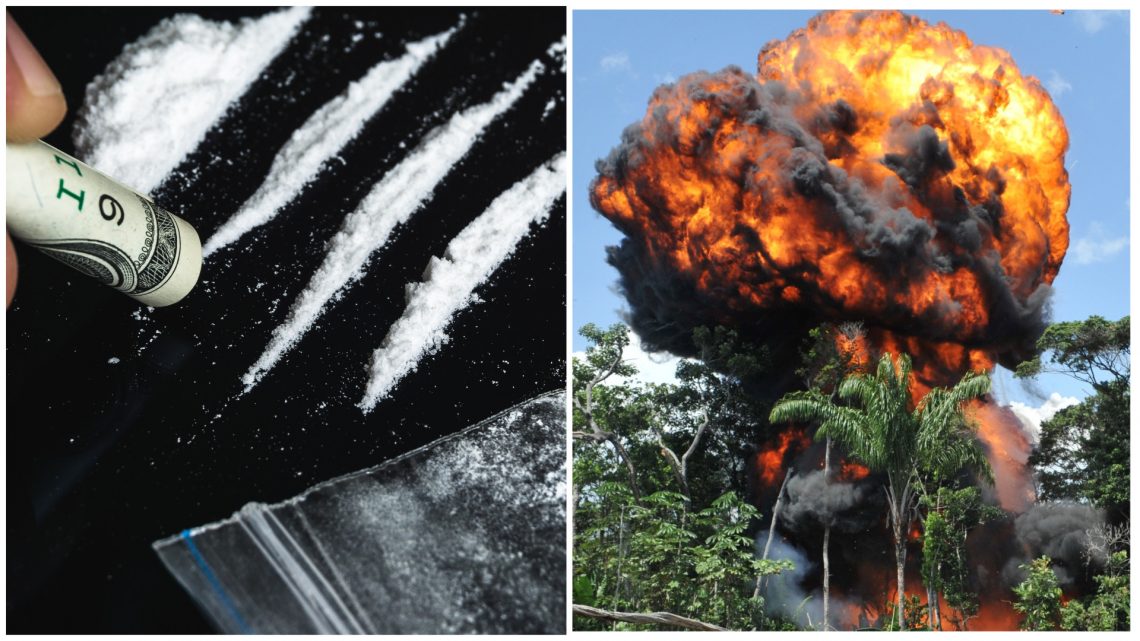
Here’s Fresh Evidence the Drug War Is a ‘Horrific Failure’
October 23, 2018The ten-year strategy cooked up by the United Nations to eradicate the global drug market has been a catastrophe, according to the most detailed analysis of the quagmire yet.
Despite goals of wiping out or significantly reducing drug use, drug deaths, coca and poppy cultivation, trafficking, and drug money laundering within a decade, the reality on the ground has consisted of a big-time expansion of drug use and the global drug trade in general.
The report, Taking stock: A decade of drug policy, was published by the International Drug Policy Consortium, a network of 175 NGOs, on Monday. It found there had been a 145 percent increase in the number of drug deaths between 2011 and 2015 alone, and 71,000 overdose deaths in the United States just last year. It also noted that, in 2016, there were an estimated 275 million people between the ages of 15 and 64 who had used an illegal drug in the past year, a 31 percent increase from 2011.
The glaring assessment came just weeks after President Donald Trump doubled down on the UN’s mission to eradicate drug addiction and create a “drug-free future.”
“This report lays out the horrific failure of the global war on drugs in stark terms—on every single indicator, the news is dismal," said Steve Rolles, senior policy analyst at the UK-based Transform Drug Policy Foundation, which campaigns for drug law reform and helped produce the appraisal.
The analysis also found there had been a 130 percent rise in illicit production of opium poppy since 2009 and a 34 percent rise in coca bush cultivation between 2009 and 2016. Likewise, the authors noted a highly-lethal proliferation of synthetic drug sales, most notably fentanyl produced in labs in China, along with what appeared to be surging dark-web drug transactions.
The report, which analyzed data from governments, the UN, NGOs and academics to inform its conclusions, also noted there had been little progress in tackling drug-related organized crime or money laundering. It argued the status quo—namely prohibition—had exacerbated violence, instability and corruption across the world, especially in Latin America and West Africa.
This failure, the authors concluded, came at a high price, with global drug policy having a devastating impact on human rights, health and development—all key aims of the UN’s own charter. Among other things, the report also tallied nearly 4,000 executions for often non-violent drug offenses over the last decade, 27,000 extrajudicial killings in drug crackdowns in the Philippines since 2016 alone, and of course the ongoing mass incarceration fueled by the criminalization of people who use drugs. One in five prisoners globally are incarcerated for drug offenses—mostly possession for personal use, the report found, citing UN numbers, adding that in some countries, 80 percent of women in prison were there for drug-related offenses.
“The international drug control system promised a world free of drugs, but has delivered the exact opposite," Rolles said. "And worse than that, it has created a vast criminal-controlled market that makes drugs more dangerous, empowers organized crime, fuels crime, violence and insecurity across the globe, and leads to mass incarceration and human rights abuses."
The authors recommended that, when UN ministers meet to discuss the next ten-year strategy in Vienna in March 2019, they develop a drug policy with “meaningful goals” based on principles like protecting human rights, health and security. But with the world arguably as polarized on drug policy as ever—possessing weed is legal in Canada but punishable by quasi-legal vigilante execution in the Philippines—that appeared highly unlikely.
Sign up for our newsletter to get the best of VICE delivered to your inbox daily.
Follow Max Daly on Twitter.


